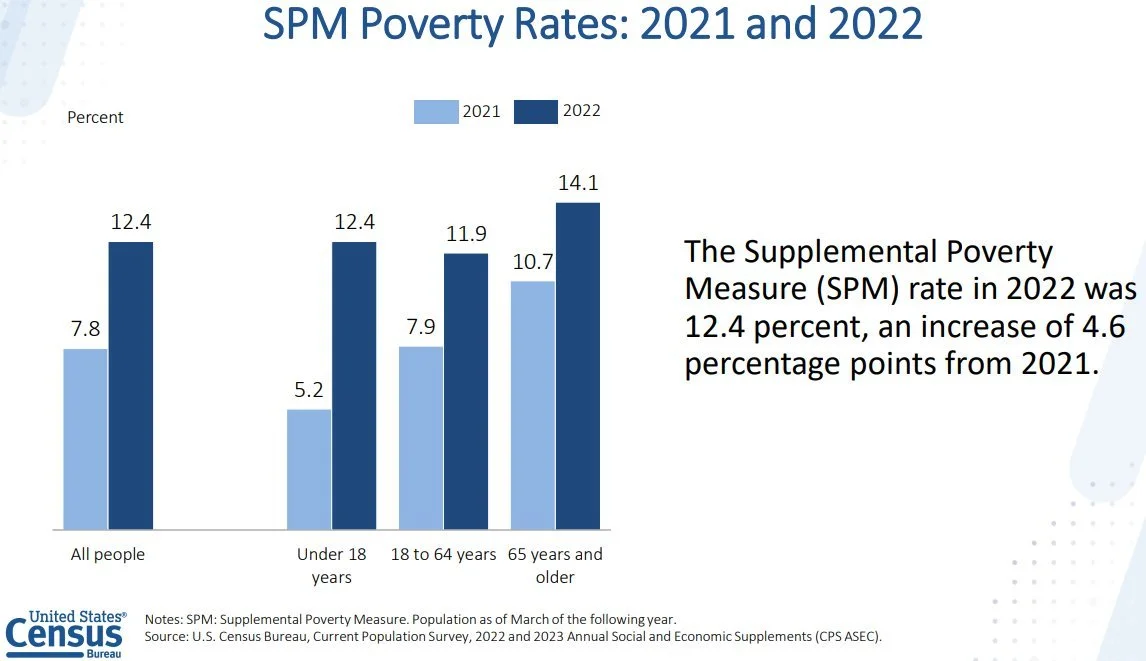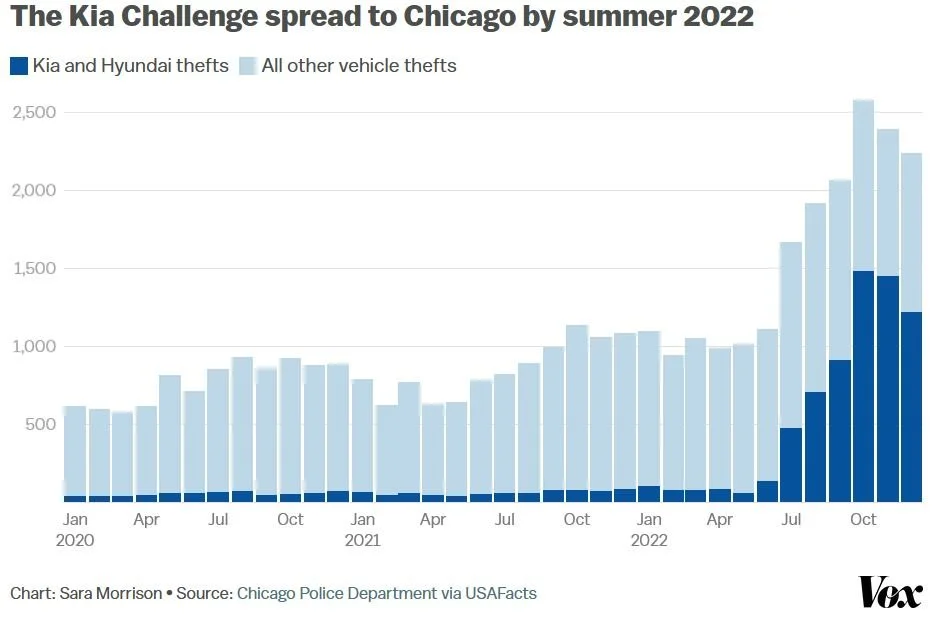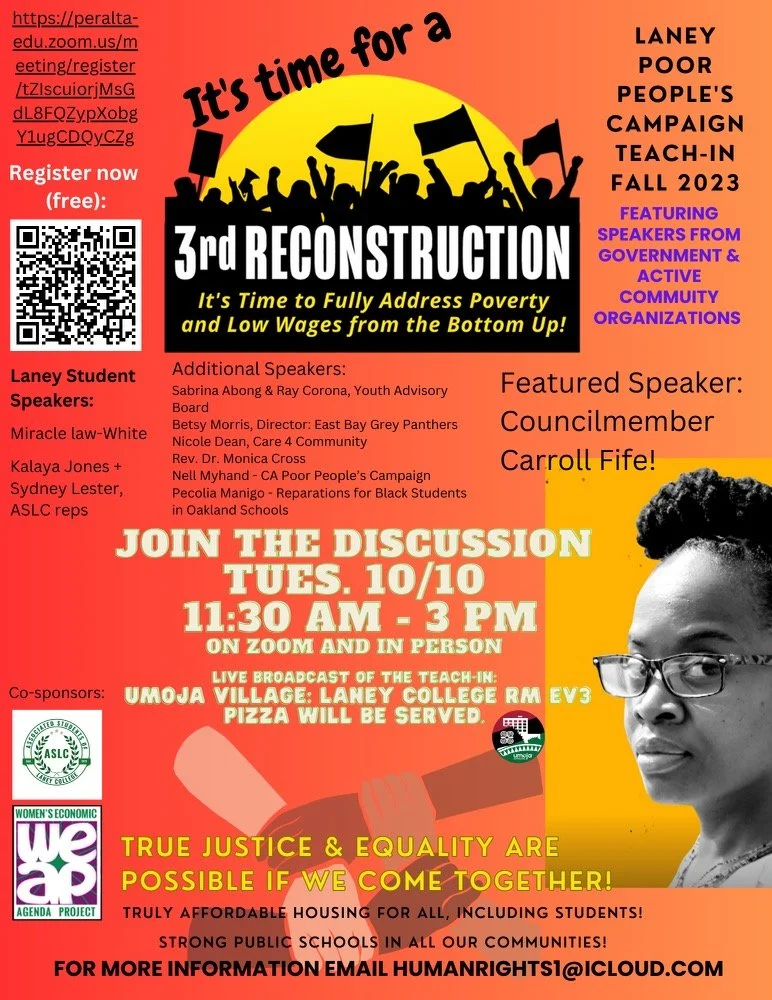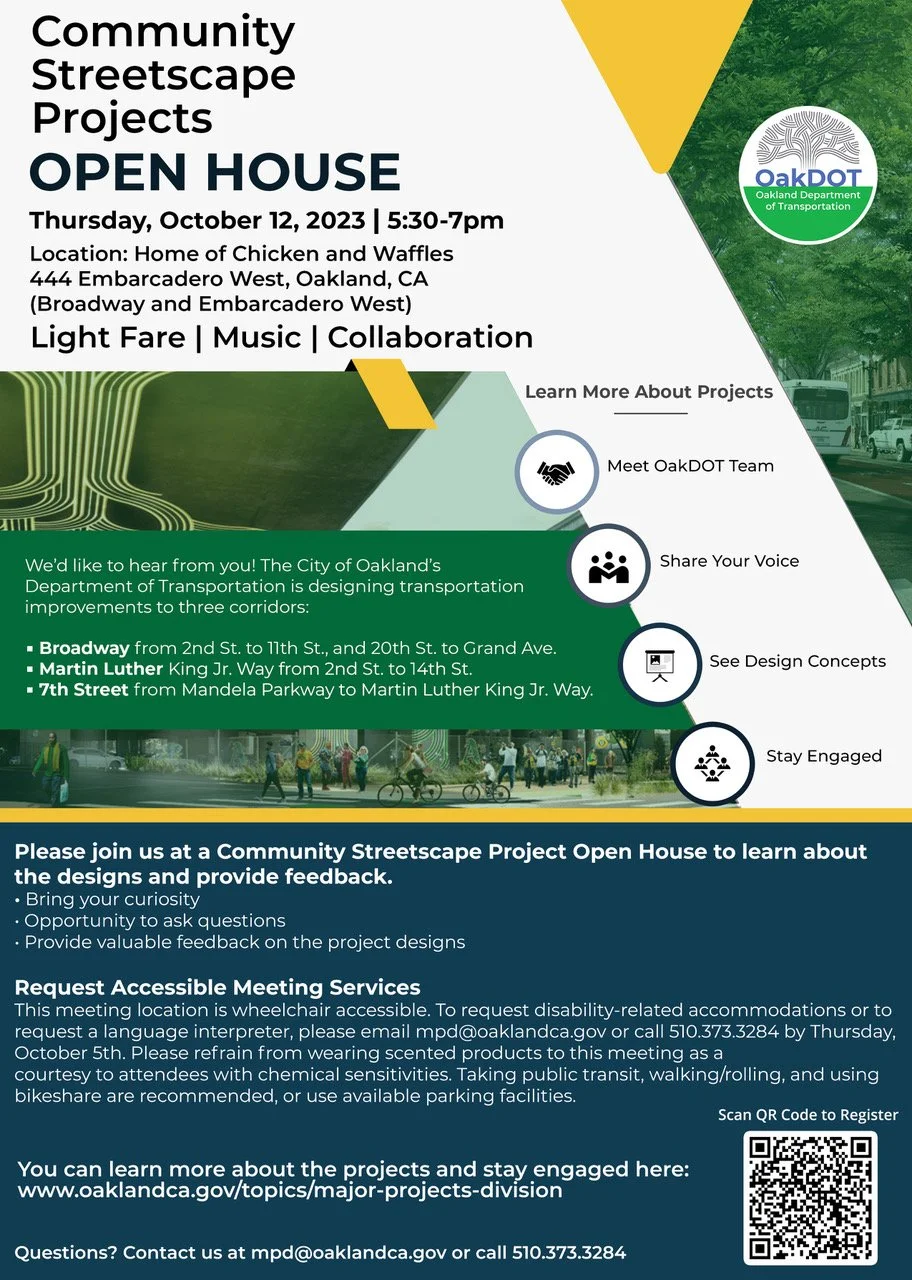October 2023
Dear friends, family and constituents,
Throughout our history, at moments of significant change where social roles and classes are shifting, we’ve seen insecurity transmute into fear and fear into violence. In times like these, people tend to be less concerned with truth and more interested in feeling okay than being okay. In the past, this cycle has led to some of America's most regressive policies and also claimed lives in the process. I shared in my last newsletter that America is going through a significant shift where its global role as an empire is crumbling, and at home many people are struggling to make sense of their lives and the political landscape. The unending flow of misinformation and disinformation is pushing people further apart and it’s nearly impossible to ignore the ripple effects on our lives.
Some responses to this nationwide social shift include worker strikes across the country, uprisings and protests, and grassroots progressive candidate victories. We are also seeing many using the words and tactics of progressive movements to lead the public back to the methods of injustice. They are using concepts like “community-based solutions,” “root causes” of homelessness and economic disparities, or even what it means to truly strike, to lead people BACK to the status quo practices that got us here in the first place. We are being co-opted in order to confuse our awareness and impede our ability to have meaningful conversations that lead to real change.
In order to navigate through this confusion, we need to look at what is currently going on through the lens of how we got here and remember what has worked and hasn’t worked, and also recognize that when it comes to community safety, crime stories are complex.
What Has Worked And Hasn’t Worked
We are at a time when many are struggling to meet their basic needs and the elimination of pathways for people to meet said needs. This has included the end to pandemic safety net measures, including child tax credits, that were very effectively keeping many out of poverty. Since then we have seen poverty rates significantly increase and child poverty has even doubled. We have also seen food stamps in California slashed, dozens of public schools in Oakland closed, senior citizen and student homelessness are at record highs with youth experiencing an increase of over 70%.
While there are some who continue to bring up the lie that OPD was defunded, we don’t realize that we instead defunded many of the programs desperately needed to move us to a more just society. We know that the young people who are most at risk of being targets or perpetrators of violence and crime are those who are disconnected from school and similar social institutions; who have been hungry and very likely unhoused. Many of the criminals we want targeted by police are youth who could have been the focus of the services we either defunded or ones we never fully committed to, because half our general budget here in Oakland goes to programs addressing crime after it’s done, namely policing.
This is all happening while increasing amounts of research shows that the fear of punitive policing is less influential in preventing crime than strong social institutions such as family and community who are supported with economic opportunities, access to basic resources and mental wellness. When Oakland and Richmond, cities that once ranked among the nation’s deadliest, began to see steady decreases in crime over the course of a decade (30% overall in the region), early evidence pointed to local violence prevention strategies – including a refocused, more community-driven “Ceasefire-style” policing strategy, and intensive support programs that did not involve expensive law enforcement (Guardian). When Richmond implemented the Office of Neighborhood Safety and began providing good city jobs with benefits for the formerly incarcerated in order to target at-risk youth, the program reduced gun violence by 71% from 2007 to 2017 in the City of Richmond*. These big reductions did not happen because of the 1994 crime bill, but through a very different approach. This is the benefit of the long-view if we choose to see it.
Crime Stories Are Complex
Crime stories in the news rarely convey circumstances or relationships. We see this when we look into why there’s been a rise in motor vehicle thefts both in Oakland and nationally. In 2011, Kia and Hyundai stopped installing a theft prevention mechanism called an immobilizer in certain makes and models. Without immobilizers, all thieves have to do is put a USB plug into a rectangular nub behind the ignition cylinder to start the engine.
This hack went viral on TikTok in 2021. What began as a problem in Milwaukee of underage kids stealing cars to joyride (called the “Kia Boys”), turned into the “Kia Challenge” that has spread throughout the country. The numbers of stolen Kia and Hyundais have tripled and even quadrupled in some areas. Some municipalities such as Milwaukee, Chicago and the SF Bay Area have seen record thefts of over 10,000 cars and many municipalities across the country are still feeling the effects of it.
In this story, we see a wide variety of factors converging to create what’s going on. We have companies choosing to shirk their duty of providing their customers with real theft prevention mechanisms. We see the advent of social media challenges with videos showing how to steal cars becoming popularized on TikTok, a platform known for being popular with young kids seeding challenges. Historically, some of the highest rates of theft are in the summer when we know kids are out of school. And alongside all this, over the pandemic we have also seen wide price fluctuations in the used vehicle industry, creating both fewer accessible opportunities to purchase, as well as potential profit.
There is a similar complexity underneath the stories about shops and restaurants closing down. Many cite crime downtown as a reason and yet when pushed, there is also an acknowledgement that recovery from the pandemic has been deeply straining, that their customers are struggling financially due to a cutbacks in pandemic support and inflation so some are choosing to work and eat at home or just stay in altogether. We are also now accustomed to ordering our needs online and sometimes there are even environmental conditions such as wildfire smoke that require us to stay indoors.
In San Francisco this year, Walgreens closed five stores, first citing retail theft. Three months later, Walgreens and CVS announced nationwide closures of some of their stores citing the Omicron variant and staffing shortages, but not their opioid settlement payouts. These pharmacies have to pay SF and other cities for being unscrupulous, yet sanctioned drug dealers. For these big box stores in particular, crime can make for an easy scapegoat in the moment, likely in order to avoid public dialogue about how they would rather prioritize large profits through online sales and automated warehouses with fewer human employees.
What Does This Mean for Us Now Here in Oakland?
Reality is far more complex than the solution of “we just need more policing”. It means taking a broad view on community safety and seeing a wide variety of solutions. Many have already been calling for alternatives in the face of diminishing returns from the existing criminal justice system. We can do some things in the short-term, and some require a steadfast, consistent commitment to the future we want to see.
Short-term solutions include street-level infrastructure implementations such as environmental design with lighting, artwork, murals, green space and clean streets alongside community ambassadors and ongoing community events. We can expand MACRO and have more civilian foot patrols. We can support our small businesses in upgrading their security systems, facades and training their employees in de-escalation. We also need to advocate for new and creative funding sources, as well as from state and federal sources, to support small businesses and the many community groups who are on the ground providing direct services to at-risk youth; this includes many of those who spoke at the recent City Council meeting in support of the Department of Violence Prevention grants, such as Youth Employment Partnerships (YEP), OPIC, Urban Peace Movement (UPM), CURYJ, 4Peace Coalition, Trybe, and All of Us Or None.
Oakland Police Department (OPD) beats can also be reconfigured to provide more resources to each community with half of the current staffing; if city-wide roles such as investigators are brought into each beat it will allow officers to have a nuanced awareness of hyperlocal problems and the ability to address the issues residents are specifically asking for. OPD should be held accountable for their solve/clearance rates; in 2019 the clearance rate for homicide was 64% and it worsened to 43% in 2021, a significant shift that is unacceptable.
Long-term investment requires building up our social institutions. Concrete solutions include affordable social housing for our seniors, youth, low-wage workers and vulnerable families. We can begin with the work I’m leading with the County Board of Supervisors, which involves using public lands for public good and I will be sharing more information soon. We need significant improvements to our current community centers and building new ones, such as the one we just broke ground for in Mosswood Park. It involves funding and expanding programs such as Head Start and creating robust public jobs programs similar to Richmond’s Office of Neighborhood Safety that specifically supports formerly incarcerated people and at-risk youth.
Concluding Thoughts
As long as we keep funding policing over everything else, we will continue to avoid seeing the ways in which crime is manufactured by our very institutions. THIS is one of the most significant criminal acts. It’s what I call Big “C” Crime. Many are realizing this. Many others have known about it for a long time. As the awareness and commitment to eliminating Big “C” crime grows, we will see new forms of repressive ideology and fear standing up to meet it. We have to remain vigilant and steadfast in the awareness that what didn’t work yesterday isn’t going to work today. We have NEVER consistently invested in preventive crime-fighting - over reactive crime-fighting.
We no longer have a choice on where to place our investments. Though you hear people demanding more officers on the streets, we don’t have anywhere to get them. Overall, adults are not going into civil service jobs, including policing, as they once did. From tree trimmers to police officers, numbers of public sector workers have declined. If we hope to get anywhere different than where we are now, we’ve got to adjust to the current realities. This doesn’t mean we should ignore violent behavior! I’ve learned from our Department of Violence Prevention staff that violence interruption done properly is often the first time people who’ve committed offenses get slowed down enough to stop and get redirected. But if there is nowhere to direct them and rehabilitation in jails and prisons isn’t happening, where will they end up in 5, 10, 20, 30 years?
We are in a dangerous place in this country if we cannot question the efficacy of our public financial expenditures and whether or not they actually yield the results we need. We all want Oakland to be safe. So while we are trying to figure out immediate solutions, we need to remember, if human needs are not on the list or priorities, then we will fail again. People are desperate right now and far too many are underprepared for the world as it exists. This is by design. We must use the resources we have and fix things now. I have solutions, and I need you to help me realize them. We have an opportunity to do something about our challenges. I just hope we all have the courage to have the conversation to make a shift happen.
In service and solidarity,
Councilmember Carroll Fife
*The Chosen Ones: Black Men and the Politics of Redemption by Nikki Jones, pgs 172-3
Items In This Newsletter
Updates
Funding Secured For The Department of Violence Prevention
Grants
2. Activate Oakland - $10,000 Grants For Small Events And Activations - Info Session Oct 4th, Apply by The 12th
Events & Community Input
3. Laney Poor People’s Campaign Teach-In - Tuesday October 10th
4. Community Streetscape Projects Open House - October 12th
5. Imagining the Library of the Future: Hoover Branch - October 14th
Surveys & Community Input
6. A Coliseum for Us All - Survey for City Residents About What You Want To See Through The edevelopment
Funding Secured For The Department of Violence Prevention
I’ve shared in past newsletters that the City of Oakland is experiencing a historic deficit resulting from pandemic outcomes and decades of limited investments from local, state and federal levels. Though the entire City of Oakland has been impacted, I am glad we were able to avoid cuts to the Department of Violence Prevention by redirecting the department’s internal cost savings from some vacant staff positions.
This allowed my City Council colleagues and I to authorize $28,087,500 for community grants and $2,250,000 specifically for our workforce jobs providers to continue violence prevention and intervention services for the period of October 2023 to June 2025; twenty-four non-profit organizations and public agencies will be the recipients for the former and six for the later.
I want to thank the fifty+ speakers who came to the meetings where we deliberated this resolution. The stories you shared about the positive impact violence prevention grants had on your lives were so powerful and necessary for all to hear. Speakers included youth, seniors, formerly incarcerated people, and organizations such as Youth Employment Partnerships (YEP), Urban Peace Movement (UPM), CURYJ, 4Peace Coalition, Trybe, All of Us Or None, Oakland PIC, Anti Police Terror Project (APTP), BOSS, Moms 4 Housing and more. Big shout to all the work you do in keeping all Oaklanders safe!
I also want to thank Councilmember Rebecca Kaplan, Council President Nikki Fortunado Bas, and Mayor Sheng Thao as well as the Department of Violence Prevention as we recognized the need, worked together and helped find the funding sources to develop this resolution. These grants are one part of a larger crime prevention strategy that is centered on addressing the economic and social needs of Oakland’s most at-risk communities, alongside all Oakland residents.
2. Activate Oakland - $10,000 Grants For Small Events And Activations
Activate Oakland grants application portal just launched and you can now apply online until Oct 12th! The grants program will provide up to $10,000 per event in funding, as well as marketing assistance, in order to support small events and activities in Oakland’s commercial districts. The goal of the program is to increase foot traffic in Oakland’s commercial corridors, support Oakland’s small businesses, and showcase Oakland’s arts and culture community.
What you need to know:
Any business, resident, community group, or nonprofit organization may apply.
Sponsored events must be free to the public and take place in an Oakland Commercial Corridor.
Applications will be scored by a review committee in accordance with the program's equity-based criteria developed in partnership with the community.
Applications for small and new events are encouraged.
The Activate Oakland program will fund $1,000 - $10,000 per event. The program may not be able to award the full amount requested on the application.
Applications for event series are encouraged.
Applicants may submit multiple applications, one for each unique event proposal.
Events must occur between October 24, 2023 and August 31, 2024.
Eligible projects include free exercise/dance classes, fashion shows, paint parties, movie nights, kids’ activities, sports lessons and tournaments, block parties, music, art, spoken word performances, yoga, cooking classes, art-making activities, district walking tours, poetry readings, pop-up retail shops, and more!
Find additional program information, the online application, full scoring criteria and details about the review panel and process at ActivateOakland.com. Activate Oakland is funded by the City of Oakland Economic and Workforce Development Department, and administered by Visit Oakland with support from City staff.
Application Workshop and Information Session:
Wednesday, October 4th | 4pm - 6pm | Fruitvale Senior Center | 3301 E 12th Street, Suite 201, Oakland, CA 94601 (map) | Register Now
3. Laney Poor People’s Campaign Teach-In - Tuesday October 10th
4. Community Streetscape Projects Open House - October 12th
5. Imagining the Library of the Future - Hoover Branch Oct 14th
The Hoover Branch Library Feasibility Study team has planned a series of FREE workshops to capture the vision of young visitors to the library. The workshops will be led by Jeremiah Tolbert of Tolbert Design Architects and focus on a variety of age ranges.
They will investigate through images, quick drawings, and model-making what the youth of our communities wish for themselves. Participants will work in teams to invent ideas during a highly interactive 90-minute workshop.
Please share with your friends, family, and neighbors and encourage them to bring their kids!
Link to register here.
6. A Coliseum for Us All - Survey for City Residents About What You Want To See Through The Redevelopment
The Oakland United Coalition wants to hear from YOU and other Oaklanders about what the Coliseum Redevelopment project should include in order to benefit local Oakland residents, families, and communities.
They want to ensure that the development of the Coliseum site benefits the people of Oakland in general and particularly supports and serves East Oakland residents and the communities surrounding the Coliseum. Through this agreement, this project could improve the lives of Oakland residents by providing meaningful economic opportunities, housing stability, and environmental safeguards.
Oakland United is a long-standing coalition of Oakland residents, workers, labor unions, community organizations, youth & faith groups that has been engaged in the Coliseum development proposals since 2015.
Their coalition will negotiate with the African American Sports & Entertainment Group (AASEG), a developer that has proposed a development on the Coliseum site that has an Exclusive Negotiating Agreement with the City of Oakland, to create a comprehensive Community Benefits Agreement for the development.







